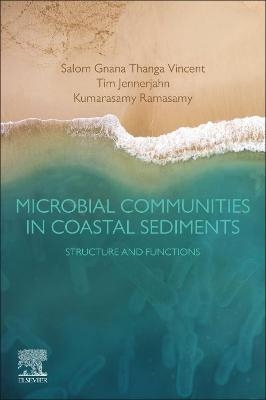
Microbial Communities in Coastal Sediments
Elsevier Science Publishing Co Inc (Verlag)
978-0-12-815165-5 (ISBN)
Microbial Communities in Coastal Sediments presents twenty years of coastal microbiology research, grounding it as a vital development in the field of microbial ecology. It is the first book to focus exclusively on the complex microbial ecology and its function in rest of the marine environment. The book outlines the structure, function, and assessment of microbial communities in marine sediments while exploring practical methods of assessment. It is an invaluable resource to aquatic microbiologists, marine ecologists, marine microbiologists, aquatic researchers, and graduate students in this field.
Microbial Communities in Coastal Sediments begins with an examination of nutrient sources in the coastal context with a focus on organic matter inputs. The quantity and quality of organic matter in coastal sediments and their impacts on the composition and formation of microbial communities is discussed. The book explores the consequences of anthropogenic changes and human activity on microbial ecology and nutrient cycling. Sections on nutrient availability, green house gas production and biodegradation of persistent organic pollutants provide essential details. Molecular research techniques and methods for assessing microbial community structure and function in coastal sediments are also covered.
Salom Gnana Thanga Vincent completed her doctorate in Environmental Sciences at Tamil Nadu Agricultural University. Dr. Vincent is a professor in the Department of Environmental Sciences at the University of Kerala. Her primary research interests are anaerobic microbial ecology, microbial biogeochemistry, and microbial degradation of pesticides. Dr. Vincent is the principal investigator of five major research projects. She has spent 20 years researching microbial soil ecology and has published 35 research papers in international and national journals. She is an awardee of the Association of Commonwealth Universities (ACU) Blue Charter Fellowship – 2019. Tim Jennerjahn is a Senior Scientist and head of the working group “Ecological Biogeochemistry at the Leibniz Centre for Tropical Marine Research in Bremen, Germany. Dr. Jennerjahn trained in geology and biogeochemistry at the University of Hamburg. His research focuses on the biogeochemical response of coastal aquatic systems to environmental change. He coordinates and participates in collaborative interdisciplinary research projects in Indonesia, India, Brazil, China, and Vietnam, and has conducted numerous expeditions. His research has been published in various journals and books. He currently teaches at the University of Bremen and in partner universities abroad, where he serves as thesis supervisor for students from Europe, South America, Africa and Asia. He is also an Editor-in-Chief of the international journal Estuarine, Coastal and Shelf Science. Kumarasamy Ramasamy, former Vice-Chancellor of Tamil Nadu Agricultural University, did his Masters in Fermentation Technology and Doctorate in Industrial Microbiology at Catholic University of Leuven, Belgium, where he also obtained post-doctoral experience in Electron Microscopy. Dr. Ramasamy gained additional experience in Gene Cloning at Michigan State University, USA. Dr. Ramasamy is one of the few specialists in the area of microbial ecology, especially in the anaerobic microorganisms. He developed microbially-managed ecological solution for paper, tannery, sugar, distillery, and textile industrial effluents. His excellence in research on aerobic / anaerobic microbiology has caught the attention of national & international funding agencies. He has published more than 152 research publications, including 8 books and 23 bulletins. His excellence in academic and research achievements has been widely recognized nationally and internationally.
1. Source and composition of organic matter and its role in designing sediment microbial communities2. Sources, types, and effects of nutrients (N and P) in coastal sediments3. Environmental variables and factors regulating microbial structure and functions4. Biogeocycling of nutrients (C, N, P, S, Fe) and implications on greenhouse gas emissions5. Biodegradation and biotransformation of persistent organic pollutants by microbes in coastal sediments6. Assessment of microbial structure and functions in coastal sediments
| Erscheinungsdatum | 11.06.2021 |
|---|---|
| Sprache | englisch |
| Maße | 152 x 229 mm |
| Gewicht | 340 g |
| Themenwelt | Naturwissenschaften ► Biologie ► Ökologie / Naturschutz |
| Naturwissenschaften ► Geowissenschaften ► Hydrologie / Ozeanografie | |
| ISBN-10 | 0-12-815165-X / 012815165X |
| ISBN-13 | 978-0-12-815165-5 / 9780128151655 |
| Zustand | Neuware |
| Haben Sie eine Frage zum Produkt? |
aus dem Bereich


